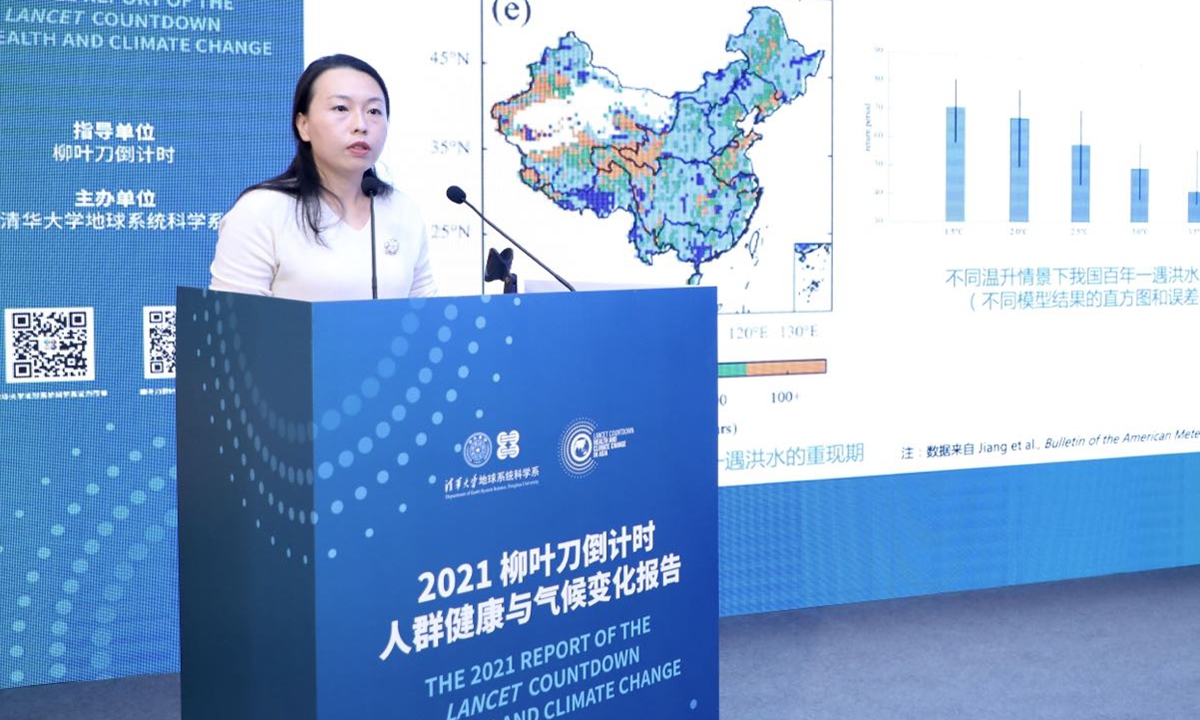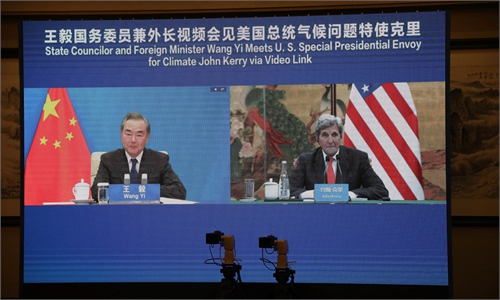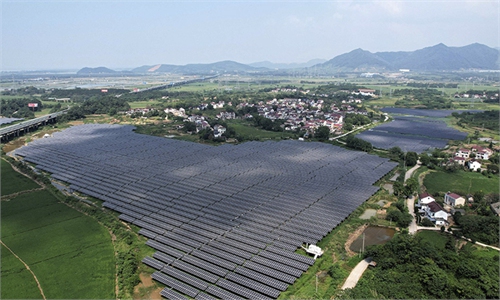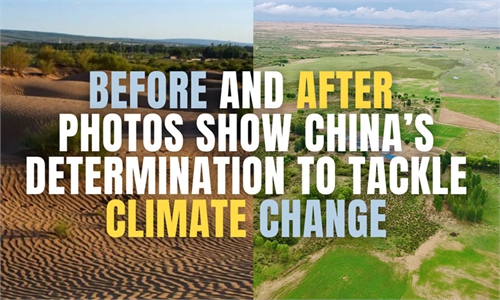
Cai Wenjia, director of the Lancet Countdown Regional Center for Asia and one of the lead authors of the 2021 Lancet Countdown China report, introduces how climate change has affected people's health and China's reaction to the climate issue. Photo: courtesy of Lancet Countdown Regional Center for Asia
From massive sandstorms that engulfed North China in the spring to the rarely seen torrential rains in Central and Northwest China this summer, China has encountered a year with a combination of challenges including unrelenting epidemic resurgence and increasingly frequent extreme weather.On the sidelines of the ongoing COP26 UN Climate Change Conference, the Lancet Countdown issued a report on Monday indicating how climate change has affected people's health and China's reaction to the climate issue, calling upon all global participants to raise awareness and jointly tackle this common public health crisis.
"The impact of climate change on people's health is more profound, far-reaching, and complex. It is more than just an environmental problem or a political one, but the biggest health crisis that humans are facing, where each and every one on earth is involved," Huang Cunrui, a professor at the school of public health at Tsinghua University, noted in the report release event.
The report pointed out that one of the most common phenomena observed all over the world is a continued increase in heat waves as a result of global warming. It can cause cardiovascular, cerebrovascular and respiratory diseases, posing greater health risks to senior citizens, especially those with underlying conditions, Cai Wenjia, director of the Lancet Countdown Regional Center for Asia and one of the lead authors of the 2021 China report, told the Global Times on Monday.
Globally, about 70 percent of deaths caused by heat waves are among the elderly, and the percentage is even higher in China, with 77 percent of all 14,000 deaths resulting from heat waves in 2020 among people aged 65 and over, Cai noted.
Another aspect of how climate change affects people's health is through extreme weather events such as the rare rainstorms in Central China's Henan Province and North China's Shanxi Province this year.
From January to October, floods have affected 58.9 million people nationwide, according to data released by the Ministry of Emergency Management on Monday, with 590 people dead and missing, 3.5 million people relocated, and 203,000 houses destroyed, resulting in 240 billion yuan ($37.5 billion) in losses.
Apart from direct casualties, the floods can also lead to the spread of infectious diseases such as diarrhea. Being a microcosm of extreme weather events, climate change is bringing other related types of natural disasters including droughts, wildfires, and typhoons, the report said.
Climate-sensitive infectious diseases such as dengue fever are also affecting more regions in China due to global warming. While still located mostly in the southern part of the country, there has been a clear trend of it spread toward the north in recent years. In 2019, the health impact of dengue fever in China was 21 times worse than in 2005.
The report, compiled by 88 experts from 25 leading international institutions using more than 20 indicators, recognized China's continued efforts and achievements in the past years, both in reducing carbon emissions and enhancing public awareness of climate-related health risks.
"From 2019 to 2020, there was a rapid rise in China's investment in renewable energy despite the epidemic. Investment in renewable energy is now 9.5 times investment in coal," said Cai, noting "the effects are also obvious, with a drop of 240,000 deaths in the country thanks to air pollution control."
Despite the progress, experts noted that China's tackling of climate-related crises is more of passive adaptation and disaster relief rather than a proactive approach. They urged governments at all levels to strengthen early warning and assessment, enhance city infrastructure, and increase green coverage.



